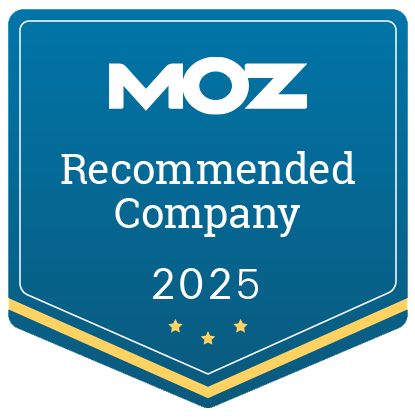Optimizing websites for search often means coping with constant disruptions and changes. Search engine optimization (SEO) pros need to keep up with things like evolving search engine algorithms, technology, competitors, and consumer preferences. Good SEOs also monitor various aspects of website performance and look for ways to improve rankings, deliver better visitor experiences, and increase site traffic.
Many people who work on search engine optimization complain they need more time to achieve the results they, their business, or their clients expect. From another perspective, struggling marketers or web designers may get bogged down in details that might not even address the unique reasons their sites aren’t performing as expected. Poor planning and prioritizing pose a more significant obstacle than a simple lack of time. In fact, you might be working on things that aren’t as important as you think they are.
Wondering if you’ve been spending time on wasteful tasks? Consider these suggestions to curb unnecessary SEO activities while focusing on search optimization tasks that truly matter.
Stop Wasting Time on These SEO Tasks
An SEO’s work might never end, a bonus for people who desire job security. At the same time, all this effort needs to yield results to improve revenue, please bosses, and satisfy clients.
Time Suck #1: Checking Website Analytics Several Times a Day
Analytics consoles offer valuable insights into how visitors find and use a site. On the downside, new or underperforming websites need more information about visitor paths or experiences. Checking them too often wastes time in the same way that dieticians warn new dieters not to weigh themselves multiple times a day and expect to see results.
What to do instead: Set a schedule to check analytics every few days or even just once a week. Spend more time researching popular competitors’ tactics and where potential customers would search for solutions the business can offer.
Time Suck #2: Obsessing Over Too Many Keyword Rankings
Ranking for the right keywords can help provide organic, high-intent website visitors that help grow businesses. Even so, optimizing for keywords only produces value if the page satisfies the searcher’s intent. Otherwise, visitors will leave the site to look elsewhere, increasing the bounce rate and failing to generate income.
What to do instead: Instead of obsessing over a kitchen sink full of keywords, focus on customers. Determine the potential questions or concerns that motivate people to visit the website, complete a lead form, or click the “Buy” button. Learning about customers will do a better job of informing a high-performing website than gathering hundreds of keywords. It is like we say in the business world, “Quality over Quantity.”
Time Suck #3: Focusing on Desktop Performance Over Mobile Experiences
Google’s data says that a one-second difference in mobile load speed can impact conversions by as much as 20 percent. These days, people spend more time searching with mobile phones than on laptops or desktop computers.
Google strives to offer search users an excellent experience. Small, handheld devices don’t have as much power as larger computers, so they generally load websites slower. Thus, the search engine algorithm considers mobile site speed and other mobile usability features as critical ranking factors.
Still, many SEOs focus on laptop or desktop website versions. After all, they spend most of their time working on larger computers with wide screens that enable them to view multiple windows and understand complex dashboards. Therefore, SEOs may lack their website visitor’s perspective.
What to do instead: View the site and ensure features perform as expected with as many different types of mobile devices as possible. Run page speed tests and pay particular attention to mobile results and suggestions for improvement.
Optimizing for smartphones often presents a more formidable challenge than optimizing for desktops or laptops. On a positive note, such common mobile optimization tactics as minimizing scripts and compressing images will also help the site load faster on bigger computers, so these activities don’t waste time.
Time Suck #4: Worrying About Content Optimization and Not Technical SEO and Site Authority
Many website owners invest all their resources in SEO-friendly content, believing this should provide search engines with plenty of signals to push them to the top of the search engine results pages (SERPs). Afterward, they feel frustrated that nothing appears to rank as well as competitors, even those who invest less in quality content.
Relevant SEO content matters when it offers value to visitors and communicates its purpose to search engines. Still, major search engines consider dozens of factors when they decide which pages should rank higher.
Mediocre content on a highly authoritative website with strong backlinks may outrank excellent content on a weaker website. Similarly, technical issues could make the site perform poorly, make it difficult for web crawlers to access the page, or even discourage indexing.
What to do instead: Nobody doubts the value of relevant, SEO-friendly content. However, SEOs should respond to alerts or cautions about technical issues from useful platforms like Google’s Search Console.
For instance, Google’s tool offers a URL inspection feature that provides vital information about mobile usability, navigational breadcrumbs, and indexing issues. When Google, the world’s largest search engine, offers tips to help sites rank, you should pay attention.
If relevant content on a high-performing website still doesn’t rank, the website and page need more authority, usually obtained by getting high-quality links from trusted domains.
Make a Plan to Improve Website Performance and SEO Efficiency
It’s frustrating when you invest hard work and time to see no movement or tangible results. But with a well-thought-out marketing strategy that focuses on customer expectations, site performance, and search rankings, you can stop wasting time by prioritizing tasks that don’t make a difference. Considering all aspects of SEO and working more efficiently will help organize workflow in a way that provides plenty of time to improve performance.
Need a little help? Zero Gravity Marketing is here to assist! Our full-suite team of web experts and strategists can help you with all things SEO- and web design-related. Contact us to learn more!









